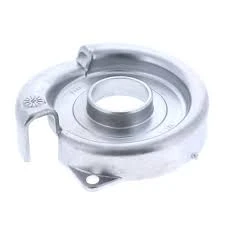Mobile:+86-311-808-126-83
Email:info@ydcastings.com
Exploring the Benefits of Technopolymer Impellers in Modern Pump Technology
The Rise of Technopolymer Impellers Revolutionizing Fluid Mechanics
In the realm of fluid mechanics and engineering applications, the choice of materials plays a pivotal role in the efficiency, durability, and performance of devices like pumps, turbines, and compressors. Among the materials gaining significant attention in recent years is the technopolymer, a category that encompasses engineered plastics designed to meet stringent performance criteria. The introduction of technopolymer impellers has brought about a transformative shift in various industries, offering myriad advantages over traditional metallic counterparts.
Understanding Technopolymers
Technopolymers are high-performance plastics that combine the beneficial properties of traditional polymers with enhancements that provide superior mechanical strength, chemical resistance, and thermal stability. These materials can endure extreme environmental conditions while maintaining their structural integrity, making them ideal for applications that require resilience and longevity. Technopolymers are also versatile and can be engineered to achieve specific characteristics, including improved wear resistance, lighter weight, and enhanced corrosion resistance.
Advantages of Technopolymer Impellers
1. Weight Reduction and Efficiency One of the most notable benefits of technopolymer impellers is their reduced weight compared to metal impellers. This weight reduction leads to increased efficiency in operations, particularly in centrifugal pumps where the impeller dynamics are crucial. A lighter impeller requires less energy to spin, thereby enhancing overall system performance and reducing operational costs.
2. Corrosion Resistance Technopolymers exhibit excellent resistance to corrosion, making them suitable for handling aggressive fluids and chemicals. In industries such as wastewater treatment, chemical processing, and pharmaceuticals, where exposure to harsh substances is commonplace, technopolymer impellers can significantly extend the lifespan of pumps and other equipment, resulting in lower maintenance costs and reduced downtime.
3. Design Flexibility Engineers benefit from the design flexibility offered by technopolymers. These materials can be molded into complex shapes and forms, allowing for innovative impeller designs that optimize fluid dynamics. This adaptability can improve flow rates, reduce turbulence, and enhance overall efficiency, paving the way for next-generation pumping technologies.
technopolymer impeller

4. Reduced Noise and Vibration Technopolymer impellers tend to generate less noise and vibration compared to their metallic counterparts. This characteristic is particularly advantageous in environments where noise pollution is a concern, such as residential areas or hospitals. Reduced vibrations also result in less stress on associated machinery, leading to longer operational lifespans.
5. Cost-Effectiveness While the initial cost of technopolymer impellers may be higher than traditional materials, the long-term savings associated with lower maintenance, higher efficiency, and extended lifespan make them a cost-effective solution. Moreover, the rapid manufacturing capability of technopolymers through techniques such as 3D printing allows for quicker prototyping and reduced lead times.
Applications Across Industries
The adoption of technopolymer impellers has permeated various sectors. In the water treatment industry, these impellers effectively handle corrosive fluids while ensuring efficient water flow. In the food and beverage sector, the non-reactive nature of technopolymer materials meets stringent sanitary standards, ensuring product safety. Moreover, in the chemical processing industry, technopolymer impellers can manage abrasive fluids, reducing wear and tear on pumping systems.
Conclusion
The emergence of technopolymer impellers signifies a paradigm shift in fluid mechanics and engineering practices. Their unique properties offer substantial benefits over traditional materials, prompting an increasing number of industries to embrace this innovative technology. With advantages such as weight reduction, corrosion resistance, design flexibility, noise reduction, and cost-effectiveness, technopolymer impellers are poised to redefine standards and expectations in fluid dynamics.
As industries continue to evolve and seek enhanced efficiency and sustainability, the role of technopolymer impellers is likely to grow, driving further innovation in design and application. The future of fluid mechanics gleams brightly with the possibilities these advanced materials bring, promising improved performance and reliability in an ever-demanding landscape.
-
Why Should You Invest in Superior Pump Castings for Your Equipment?NewsJun.09,2025
-
Unlock Performance Potential with Stainless Impellers and Aluminum End CapsNewsJun.09,2025
-
Revolutionize Your Machinery with Superior Cast Iron and Aluminum ComponentsNewsJun.09,2025
-
Revolutionize Fluid Dynamics with Premium Pump ComponentsNewsJun.09,2025
-
Optimizing Industrial Systems with Essential Valve ComponentsNewsJun.09,2025
-
Elevate Grid Efficiency with High-Precision Power CastingsNewsJun.09,2025











